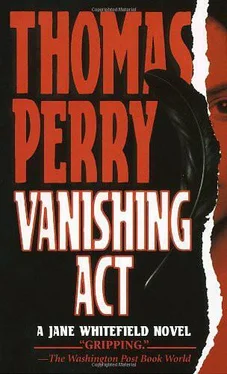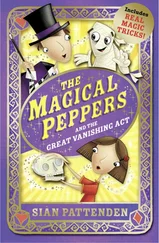They went on into the night, making pots of coffee and sitting in the kitchen, again, staring at each other across Jimmy’s table.
"What are you going to do with your money?"
"Bury it, I guess. I can’t put it in a bank. There’s a reporting requirement for cash deposits over ten thousand dollars."
"How much did you take?"
"Three hundred and fifty thousand."
"There are ways to hide it," Jane said. "You open seven or eight checking accounts in different banks: two in the town where you live, and the rest in other places."
"In my own name?"
"Yes. You put a few thousand dollars in each one— say, eight thousand. Make sure they don’t pay any interest, because that gets reported to the IRS."
"Then what?"
"Then you get one of the local banks to think you’re a businessman who leaves cash receipts in the night-deposit box, a few hundred dollars a night, to feed that checking account. You use that one to pay the others now and then."
"What does that accomplish?"
"It lets you start an investment account with one broker or mutual fund for each checking account except the one you’re feeding. You set up automatic monthly withdrawals—a couple hundred a month. You can add a little cash once in a while, but most of the money comes in checks from your local bank. When you get behind, buy travelers’ checks with cash and use them to make deposits in the checking accounts."
"Does that keep me from getting noticed?"
"If you pay taxes on the bogus business and on the investments, it does. You keep the cash deposits small but steady, so nobody thinks you’re doing anything illegal. To the extent that you can, you live off the cash. That also gives you change, so it’s not all hundreds or round-number deposits. When you need to write a check for something like tuition, do it from the second local account. After a few years, you end up with about two thirds of your cash in seven or eight good investments you’ve built gradually. You stop the automatic withdrawals, close all the checking accounts except two—one local and one somewhere else, so you can still pass a little money from one hand to the other when you need to. By that time your teacher’s salary will have kicked in, and you can live like everybody else."
"That leaves me with a third of the cash, less whatever it costs to live until I get a job. What’s that for?"
"That’s in case you make a mistake," she said. "That gets you out."
"How did you learn all this?"
She shrugged. "It’s what I do."
"Why do you do it?"
"Because I need to do something that makes sense."
"You know a lot about colleges, so you must have gone to one. What were you studying to be?"
"Nothing, really," she said. "To tell you the truth, I spent most of my time in the library. One of the great ironies of being an Indian in the twentieth century is that you have to do a lot of reading. I had a vague idea I might go to law school, but I got distracted before I made a decision."
"What distracted you?"
"I was a sophomore when somebody I knew got into trouble. He was a little older. During the war, he had been drafted and ducked out. He hadn’t even changed his name, just stopped answering their letters and went to a different college. He wasn’t exactly a problem for the government. He just didn’t want to kill anybody, but his local board decided he wasn’t a conscientious objector. They probably knew where he was all the time, but they were too busy to go pick him up. After the war ended, they found the time."
"How did you know him?"
"We took a class together. Sometimes we’d have coffee after a seminar. It wasn’t much of a relationship. But one night he came to me in the dorm and told me the F.B.I. had come to his apartment looking for him while he was out. While he was talking, I could tell he had decided that if he had to go to jail, he would kill himself. He was saying goodbye. Not to me—we weren’t even involved, really, but I was the only girl he could talk to right then, that night, and so he was saying goodbye to all women through me—the ones he had known but didn’t anymore, and the ones he would have known if he had lived."
"Did you talk him out of it?"
"No," she said. "I wanted to, but all of a sudden I realized I wasn’t listening to his words. I was looking at him and thinking how easy it would be to make him disappear."
"As a sophomore? You must have been—what— nineteen?"
"I had worked two summers as a skip-tracer for a bill-collection agency in Buffalo, so I had a pretty good idea of what worked and what didn’t. I also got a feeling for how the dogs hunt. They’re not all the same, and they don’t look equally hard for everybody who’s on the run. A young guy who’s a student and isn’t dangerous, sometimes they figure he’ll just turn up sooner or later. He’ll pay taxes or apply for a marriage license or a loan or something. Sometimes I think they got a special kick out of arresting draft-dodgers twenty years later, so it would get into the papers to remind people that they never stop looking."
"So you made him disappear?"
"Yes. Then a few people found out about it—friends of his, friends of mine."
"And they told other people?"
"Not right away. But people grow up and the years go by, and just about everybody meets someone at some point who needs that kind of help."
He nodded. "So they made you do it again."
"No," she said. "It wasn’t them, it was me. When I realized I could do it, there was a temptation to do it again. I was the one who decided."
When the sun started to fill the room they turned the lights off and made breakfast. As they washed and dried the dishes at Jimmy’s sink, Felker said, "What’s next?"
Jane pulled the plug in the sink and let the water go out. "We need to sleep." She had kept it up for almost twenty-four hours now. She wasn’t sure she had burned the dream out of her mind, but she knew she hadn’t been doing him any good for the past hour or two. "If you wake up before I do, spend the time thinking about the future. Try to pick out things you’re not sure about. Forget the past. There’s nothing deader than that."
14
Jane woke up in the dark room. She felt agitated, troubled. There was a throbbing of drums far off, and then the voices of the people singing the Ga-dashote. The chorus of voices in the first column of dancers was singing, "Ga no oh he yo," and the other column of dancers would answer, "Wa ha ah he yo."
"Are you awake?" Felker was in the room.
"Yes," she said. She pulled the covers up to her neck and sat up. "What is it?"
"I was going to ask you the same thing."
She laughed. "I’m sorry. You startled me. Are you dressed?"
"Sure. As soon as I heard the war drums, I figured I’d better."
"Give me a minute."
She watched his shadow slip out and the door close. Then she got out of bed, turned on the light, and searched her bag for clean clothes while she tried to bring her mind back up from the panicky feeling she had gotten in the deep, restless sleep. She caught sight of herself in the mirror on Jimmy’s dresser when she stepped into her jeans. She looked frightened.
She walked out into the living room, brushing her hair. "Mattie will be here in a few minutes to find out why we’re not at the dance."
"Shouldn’t we wait for her?"
"No. If we don’t go now, we’re being rude." They walked out into the field and headed for a long, low building a distance off. There were lights, cars, and the sound of the drums and voices. "It’s not a war dance, by the way. It’s called the Trotting Dance. It’s the first dance you do in a big celebration."
"What are we celebrating?"
"Thanks to the Maple."
"You mean the tree?"
"It’s the first big party of the year, because the first good thing in the spring is that the maple sap starts running. Then there’s the Green Corn Festival, Strawberry Festival, Harvest, New Year’s. You know, the usual."
Читать дальше












